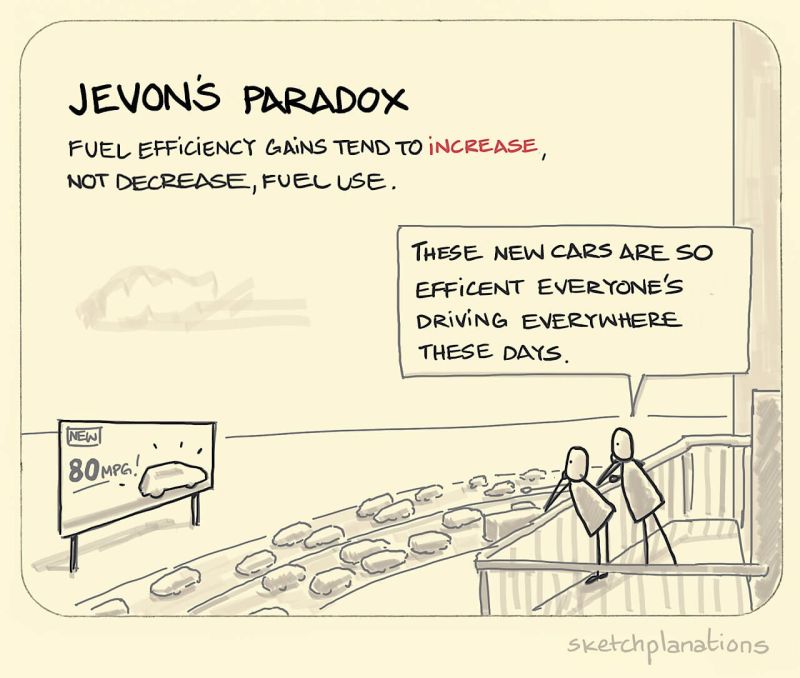AI will drastically bring down the cost of writing code. Surprisingly, that means that we will need more tech professionals, not less.
Jevon’s Paradox states that efficiency doesn’t reduce consumption; it actually increases consumption.
As AI advances, it’s predicted to dramatically lower the cost of tasks such as writing code. Here’s the twist: rather than diminishing the need for tech professionals, this will actually expand it.
Consider the precedent set by Moore’s Law: as the cost of computing plummeted by over 1000x over the past three decades, we didn’t witness a decrease but an explosion in usage. Similarly, as AI makes tech tasks more cost-effective, we’ll see an upsurge in demand for computing, driving a need for more tech experts, not fewer.
Why? Because lower costs and higher efficiency lower the barrier to innovation, leading to new tech frontiers and, consequently, new jobs.
Sure, there will be some bumps and dislocations along the way.
The job of today’s software engineer or tech professional is not going to look the same even a few years from now, but the demand is going to increases.
As leaders and innovators in tech, understanding this economic dynamic is crucial. It’s not just about replacing tasks; it’s about creating opportunities for innovation, entrepreneurship, and ultimately, more employment in technology.
What are your thoughts on the long term effects of AI on tech jobs?
For more insights like these, subscribe here: https://lnkd.in/gbaF5him
#ArtificialIntelligence #TechIndustry #EconomicParadox #JevonsParadox #FutureOfWork #Innovation #MooreLaw

